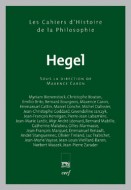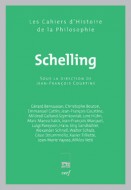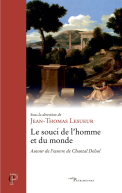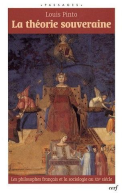
Miroirs de l'identité
Collection La Nuit surveillée
400 pages - févr. 2009
41,00€
Depuis toujours, l'homme est en quête d'un miroir dans lequel il pourrait trouver, enfin ramassée et comprise, l'image de sa propre identité éparse. L'élément d'une telle recherche, il le trouve dans le langage, et avant tout dans deux formes privilégiées de celui-ci : la philosophie et la littérature ; la première cherchant à tout enclore dans un seul concept, et la seconde dans une forme unique. Mais, dans ses manifestations les plus hautes, chacune de ces deux tentatives reste secrètement hantée par l'autre, comme tentent de le montrer, à propos de la littérature, les essais ici réunis. On pourra trouver différentes versions de cette image récapitulatrice dans laquelle se condensent, pour l'homme, non seulement ce qu'il est, mais plus généralement (ou plus singulièrement ?) ce qui est. Elle pourra être l'image d'une chose, d'un infiniment petit résumant tout — la terre de l'alchimiste (cet écrivain involontaire, mais absolu), le « point » de Pascal, l'« atome séminal » de Diderot ou de Hugo. Elle pourra être aussi l'image d'un acte sacré — soit bénéfique, soit transgressif — d'une fête liturgique dont Wagner, Mallarmé, Proust tenteraient de fixer le rituel, alors que Barbey ou Gracq y maintiendront l'obsession fasciné du sacrilège. Elle pourra enfin mettre en présence de « quelqu'un », d'une individualité souveraine qui est simultanément toutes les autres et dont on peut donc dire qu'elle est divine : l'Homme-Dieu de Hölderlin et Kierkegaard, apparemment si étrangers l'un à l'autre, l'Ange de Rilke. Dans ce dernier type d'exemples, ce n'est du reste plus à une image que le lecteur a affaire, mais au miroir lui-même devant lequel (et dans lequel) il se trouve traduit et où il rencontre la mesure de son destin comme l'assignation de sa tâche. De ces miroirs — beaucoup sont aujourd'hui brisés — les images évanouies, les fêtes éteintes. Ce recueil est un hommage modeste, mais nostalgique, aux minutieux microcosmes dans lesquels une humanité plus ambitieuse avait essayé — peut-être avec succès — de cerner son énigme.
--
Man has always been in search of a mirror in which he might contemplate a unified, comprehensible image of his own fragmented identity. The means of his search is language, especially the two privileged forms of expression that are philosophy and literature; the former seeking to contain everything in a single concept, the latter in a unique one. However, in their highest forms, each one of these endeavours remains secretly haunted by the other, as the essays assembled here show as regards literature. We could find different versions of that all-encompassing image which condenses, for man, not only what he is, but more generally (or more uniquely?) what is. It could represent a thing, an infinitely small, all-resuming entity – the earth of the alchemist (that involuntary but absolute writer); the ‘point’ of Pascal; the ‘seminal atom’ of Diderot or Hugo. It might also be the image of a sacred deed – beneficial or transgressive – of a liturgical celebration whose ritual has been forged by Wagner, Mallarmé and Proust, while Barbey or Gracq assure the presence of the spellbound obsession of sacrilege. It might also assure the presence of ‘someone’, a sovereign individuality who is simultaneously all others and who consequently can be termed divine: such as the Man-God of Hölderlin and Kierkegaard, apparently so distant from one another, or Rilke’s Angel. In this last type of example, the reader is no longer dealing with an image, but with the mirror itself, in front of which (and in which) he finds himself transcribed and wherein he encounters the measure of his destiny as an assignation of his task. In these mirrors – many of them broken today – the images are faded, the celebrations are over. This book is a humble yet nostalgic homage to the tiny microcosms in which a more ambitious humanity once attempted – perhaps successfully – to define its own enigma.
--
Man has always been in search of a mirror in which he might contemplate a unified, comprehensible image of his own fragmented identity. The means of his search is language, especially the two privileged forms of expression that are philosophy and literature; the former seeking to contain everything in a single concept, the latter in a unique one. However, in their highest forms, each one of these endeavours remains secretly haunted by the other, as the essays assembled here show as regards literature. We could find different versions of that all-encompassing image which condenses, for man, not only what he is, but more generally (or more uniquely?) what is. It could represent a thing, an infinitely small, all-resuming entity – the earth of the alchemist (that involuntary but absolute writer); the ‘point’ of Pascal; the ‘seminal atom’ of Diderot or Hugo. It might also be the image of a sacred deed – beneficial or transgressive – of a liturgical celebration whose ritual has been forged by Wagner, Mallarmé and Proust, while Barbey or Gracq assure the presence of the spellbound obsession of sacrilege. It might also assure the presence of ‘someone’, a sovereign individuality who is simultaneously all others and who consequently can be termed divine: such as the Man-God of Hölderlin and Kierkegaard, apparently so distant from one another, or Rilke’s Angel. In this last type of example, the reader is no longer dealing with an image, but with the mirror itself, in front of which (and in which) he finds himself transcribed and wherein he encounters the measure of his destiny as an assignation of his task. In these mirrors – many of them broken today – the images are faded, the celebrations are over. This book is a humble yet nostalgic homage to the tiny microcosms in which a more ambitious humanity once attempted – perhaps successfully – to define its own enigma.
- Dimensions : 135x215x25
- ISBN : 9782204088299
- Poids : 490 grammes
Avec la collaboration de : Marc Fumaroli
DU MÊME AUTEUR
> VOIR TOUS LES LIVRES DE l'AUTEUR
DANS LA CATÉGORIE PHILOSOPHIE CONTEMPORAINE (XX-XXIE)
Le souci de l'homme et du monde
Autour de l'oeuvre de Chantal Delsol
de Jean-Thomas Lesueur
216 pages - oct. 2024
La Théorie souveraine
Les philosophes français et la sociologie au XXe siècle
de Louis Pinto
384 pages - mars 2009









